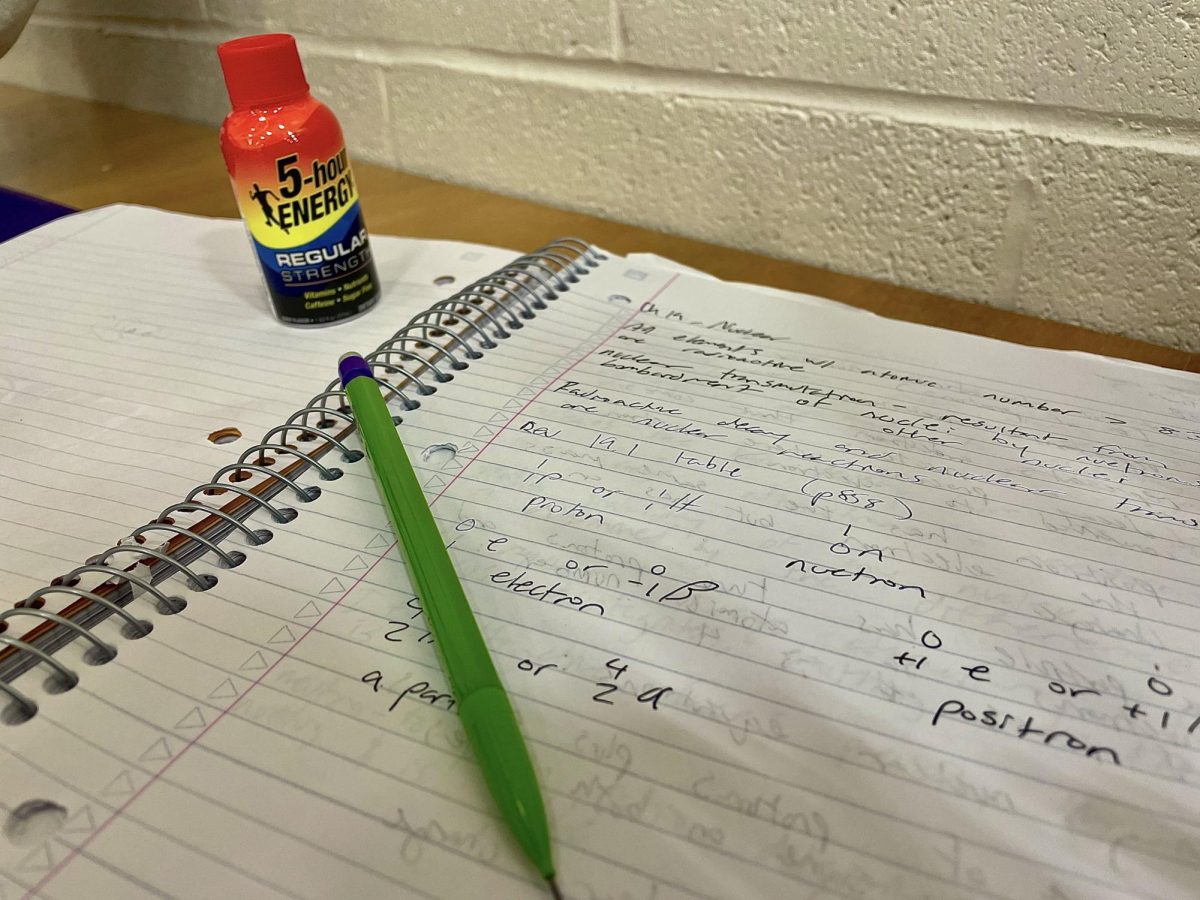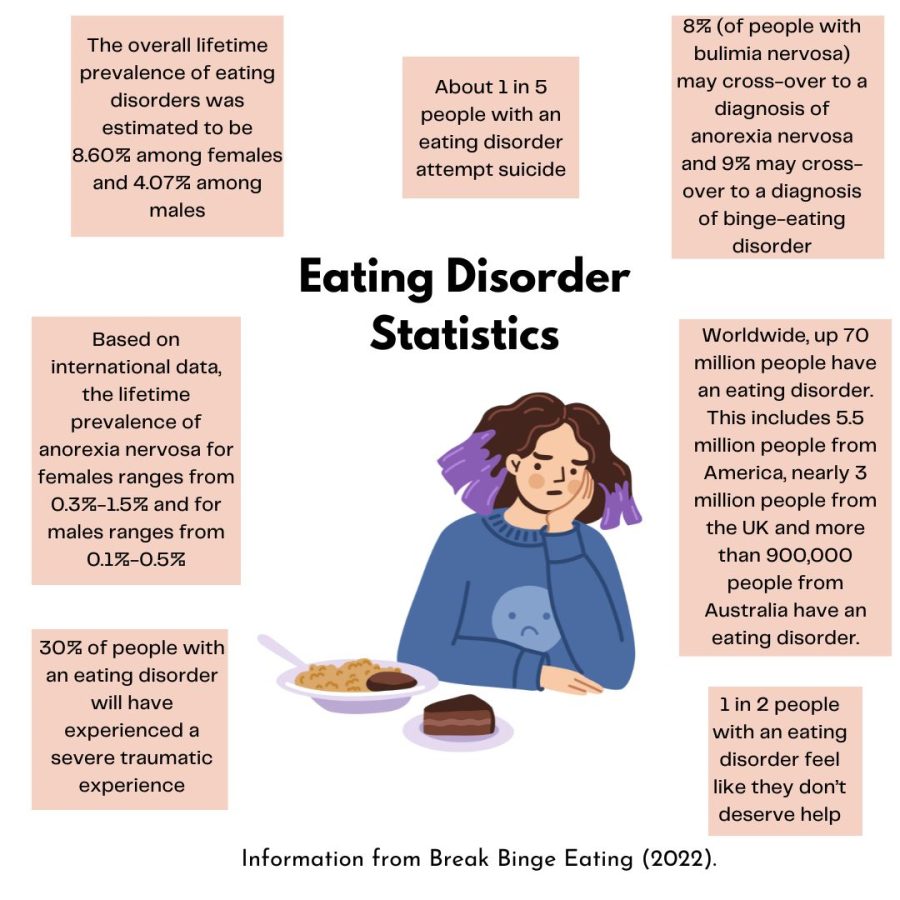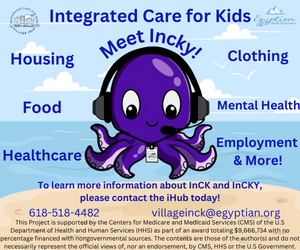Eating Disorder Awareness Week draws attention to serious issue
February 27, 2023
The month of February is associated with Valentine’s Day and Black History Month, but it also puts a special week aside to bring awareness to people struggling with eating disorders and to give them support. “National Eating Disorder Awareness Week” is February 27-March 5.
According to Eating Disorder Hope, eating disorders are “serious mental and physical illnesses that involve complex and damaging relationships with food, eating, exercise and body image.” Any person, no matter their gender, ethnicity, race, nationality, age, sexual orientation, or body shape or weight, can suffer from an eating disorder. There are many types of eating disorders including anorexia nervosa, bulimia nervosa, binge-eating disorder, avoidant/restrictive food intake, and other specified feeding and eating disorders.
There are a lot of factors that could lead to a person developing an eating disorder. Mental disorders such as anxiety or depression can sometimes play a part in a person forming an eating disorder. Other things such as body image, family dysfunction, and even genetics can play a role in it.
“Scientists can’t say exactly what causes an eating disorder or predict who will develop an eating disorder,” Lauren Muhlheim, doctor of psychology and eating disorder expert, said.
According to the National Eating Disorder Association, some warning signs that someone is potentially struggling with an eating disorder could include loss of dieting, skipping meals, concern with body shape or size, and frequent mood swings.
Parents and friends of someone struggling with an eating disorder have available resources to help support them. First, understanding the disease is an important factor. They can consult research that has been done on eating disorders and empathize with the person who is struggling with the disorder. Understanding the change the person is experiencing is also important.
“One of the most protective and supportive things you can do as a parent is to get to know your child and to continue to know them as they grow and develop,” Casey Cottrill, member of the Section of Adolescent Medicine at Nationwide Hospital, said. “Eating disorders are a serious medical problem that can have long-term health consequences if left untreated.”
Patience is another crucial part of supporting someone with an eating disorder. Some who struggle with an eating disorder don’t even realize that there is a problem, so being patient with them can make a huge impact on their recovery.
“If someone you know has an eating disorder, you will want to be as supportive as possible,” clinical psychologist Emily Giarnotta said.
For those who feel that they may be struggling with an eating disorder, there is help available. There are eating disorder helplines online that give support and other treatment options.
It is important to encourage them to see a doctor or a licensed therapist to get the proper diagnoses. There are also treatment centers, in patient or outpatient, that are available. Additionally there are also groups for people who struggle with eating disorders. Sometimes, depending on how far the eating disorder has progressed, therapy could be an option.
“The most important thing to know is that recovery is possible at any age with the right tools, skills, and support. With treatment, many people fully recover,” Minneapolis physician Joel Jahraus said.































